Good! This means no particular advertising or marketing has ‘gotten’ to you yet! This is GOOD NEWS for your puppy and for you! Let’s break the suspense right away…There is no processed ‘Puppy Food’ you should choose from. There is a variety of foods, ingredients, micro nutrients that you should feed your puppy and we will walk you through all of them.
My New puppy is home…now what?

Most people will get their first bit of Advice from the breeders. Then there will be Advice from friends and family, and of course as soon as you post your new puppy there will be advice from social media followers. Then there is the big one – Advice from the internet: The internet is full of dated conventional wisdom that they get from the previous guy that wrote the puppy blog. But science has moved on. Research has moved on. And if you read the same old thing, you will do the same old thing. Read the latest! Read what else has someone got to say? Who are they and what makes them say what they are saying? Are they backing up their claims with anything other than “I think so” or “everyone has always done it like this”
Look for credibility, look for who is saying it, look for professionals, and look for holistic advice based in sound science. Pet food companies will say their food is the best. The Vets that sell it, will say that it is the best. The breeder will say this is what I have always done… but what’s always been done has led to an epidemic of cancer, obesity, diabetes organ failure, congenital heart diseases and Inflammatory joint conditions. So perhaps it’s time to NOT do what has always been done, and do what research is now showing SHOULD be done.
Are you prepared for the new puppy?
I hope that you did some research into a puppy and what it entails before you got the puppy home, or perhaps this is your research, In which case, well done for landing on this page. There are some very credible Holistic Vets around the world that give invaluable advice on how to raise your puppy to be healthy and happy. We have a few of them on our Resources page.
If you have your puppy or plan to get one, this is a great blog to read about what are the 5 NEW things you should know about puppies!
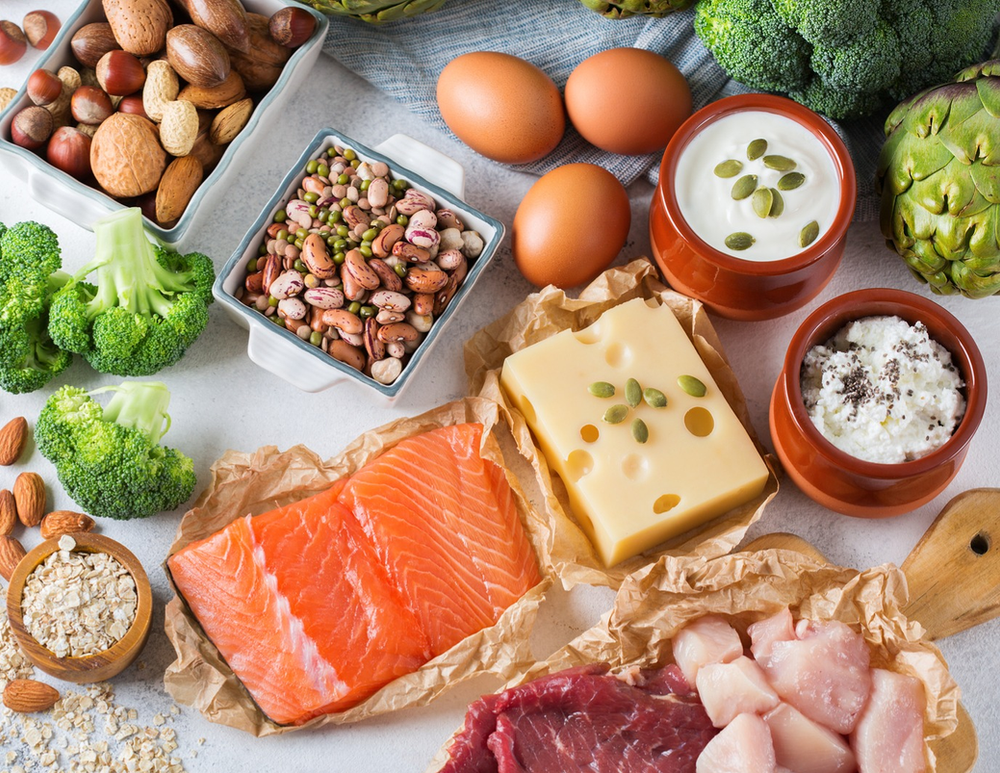
Nutritionally what do you need in your home to be able to feed the puppy right and help them grow up strong is most likely already there. Since we are in India, Bangalore, and there is a vast majority of vegetarians, it is possible that home cooked diets will not provide your puppy with the protein needs that dogs have. Vegetarian sources of protein provide very little protein at the cost of very high carbohydrate consumption in the process. For example, lentils and pulses are considered high protein. And that is a very relative term, because compared to chicken it is negligible amount of protein.
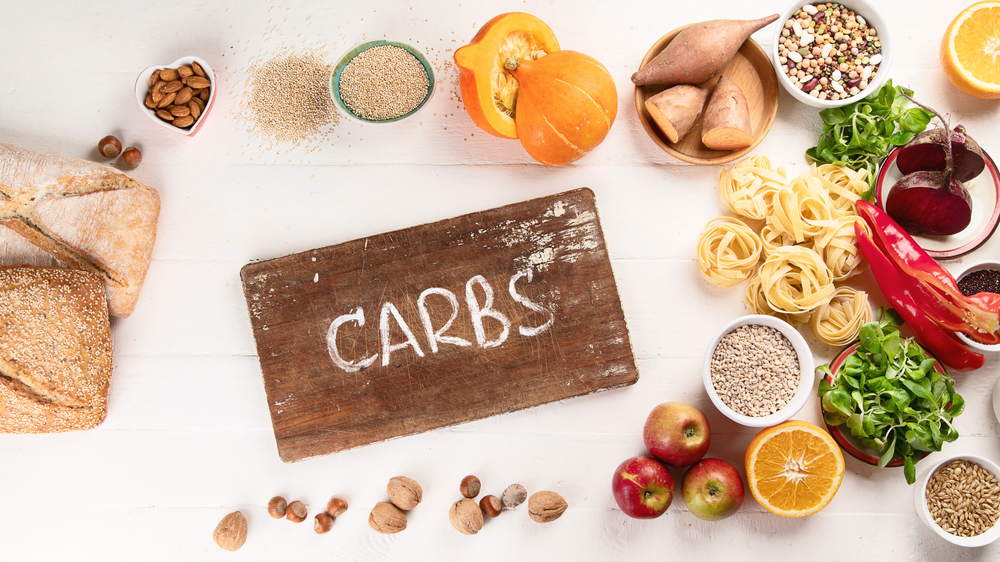
However, in order to get that 5 gm of protein, one must consume upwards of 70% of the calories in the form of Carbohydrates. So when you look at the meal structure of lets say, Daal + Rice / oats + Veggies + some paneer (Indian Cottage cheese) with some coconut oil or ghee, it will look something like this – 75-80% carbohydrates, 5-8% protein, 5-10% fats and 5-6% fibre.
THIS is not a good diet for dogs. Certainly not for growing pups.
What it should look like is 20-30% Protein(min), 10-20% Healthy Fats, 10-15% Fibre, and only 25-30% Carbohydrates. Having said this, Carbohydrates can in fact be completely eliminated from your dog’s diet and form a very small part of it in the form of some really nutritious vegetables.
What is the importance of nutrition in puppyhood?
Let’s look at the macros and what they do in the body, and then look at the growth stage of a puppy and see what they “Need” during these stages.
Carbohydrates – Dogs actually have no need for carbohydrates. It is true that they have genetically adapted to producing more Amylase(An enzyme that helps break down Carbohydrates) than their ancestors would have produced to digest carbohydrates. And more often than not, this is looked at as a need for carbohydrate. What we have to look at is, why this mutation happened when dogs started living with humans and were fed on scraps.
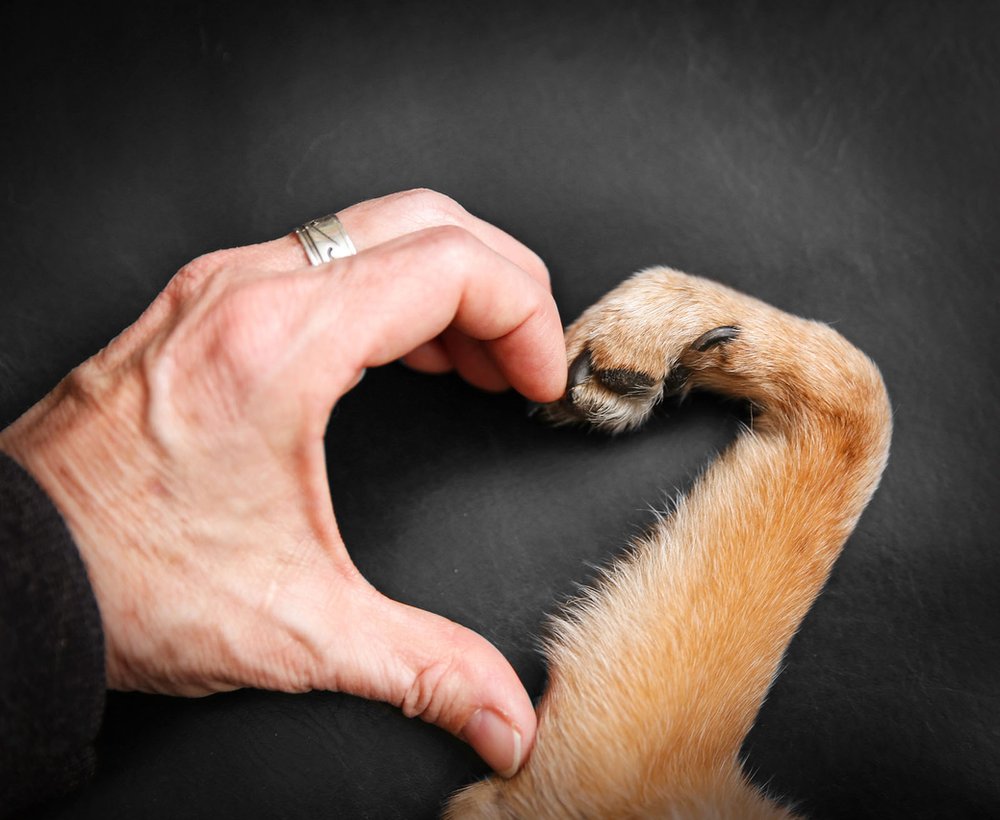
This was a mutual benefit relationship and as the dogs lost their inclination to hunt, and they started living exclusively with humans, they also had to survive on whatever food the humans could spare them. Starving to death would have made the species extinct. So they evolved and mutated. But their bodies DID NOT mutate or evolve to have any real NEED for the carbohydrate, and neither did they evolve to stop needing protein. I know this story is a little like… “Yes this is true, but this, and but that!” and it may leave you, the reader, wondering what to make of it. So bear with me and I hope to make things clearer.
Let’s look at what all this carbohydrate does inside the dog’s body? It primarily does what it does inside our bodies. It spikes insulin, converts into glucose(Sugar), some gets used as immediate energy, most however is stored in the muscles and liver as Glycogen. These glycogen stores are little packets of energy available to the body as and when they are needed at a later date. However, As the dog’s body will prefer protein and fat as a primary source of energy, these little packets almost always go unused and often there are way too many of them to be used anyway. Eventually through a process called De Novo-lipogenesis they are converted into fat, because fat stores have a much longer shelf life, and the liver and muscles then go unto store new little glycogen packets that keep coming in with every meal. Making sense so far?
This is my biggest concern with dogs on a high carbohydrate diet. Sooner or later we will end up with fat dogs. Which is what we have today world over. Excess weight and obesity is an epidemic. Because Processed food (Kibble) is very high in carbohydrates and so is unbalanced fresh food. How to read labels and calculate the macros in processed food is a whole other blog I plan to do.
Now coming to protein, what does protein do in your dog’s body? Protein is the building block of everything inside the body. It builds muscles, connective tissues, ligaments, tendons, hair follicles, and nails. When we read this, most people do not understand the vast expanse protein covers in our bodies – Muscle is a connective tissue, the skin is connective tissue.
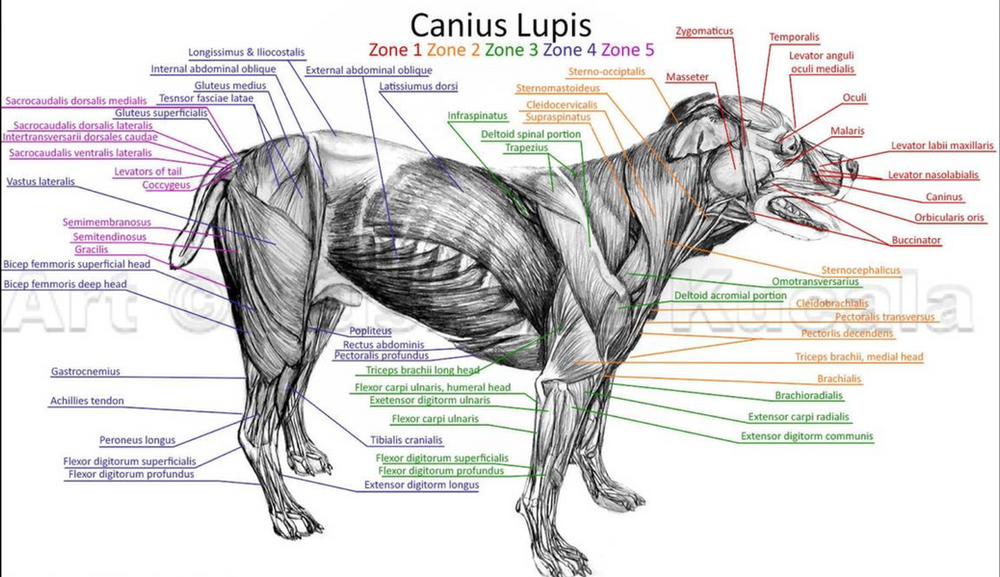
It is found EVERYWHERE in the body between organs including the nervous system. Ligaments are a form of connective tissue that are elastic and bind bones to other bones forming a joint, and tendons are connective tissue that bind joints to muscles and keep them in place, keep them mobile; so fairly important I’d say. (You can imagine how important strong ligaments and tendons are to a dog with arthritis and HD) Hair is made up of a type of protein, think about that the next time your dog’s hair is not soft and shiny. Protein is Essential for life itself. When we think about a growing baby or puppy, needless to say that their need for protein is fairly high.
Fats!! If you thought that protein is everywhere in the body due to connective tissue… Fat is in every single cell membrane! No one needs to be told that a healthy cell membrane is the very foundation of a healthy body. Unhealthy cell membranes will effectively make the whole body including organs unhealthy, since they replicate themselves and all their imperfections. Fats are dangerous when they are not good fats, and with the entry of “refined” fats, the whole world was thrown into a whirlwind of bad fats. Fats also need to be fresh. Stored fats over time get oxidized and go rancid. Rancid fats can cause a lot of damage to the body at a cellular level. THIS IS WHY you don’t want to feed Kibble with “added fish oil” and so on!
All in All – FATS are super important, Good fats are important – Fresh Fats are important! The top 5 types of fats that your puppy absolutely needs to grow up healthy and stay healthy are:
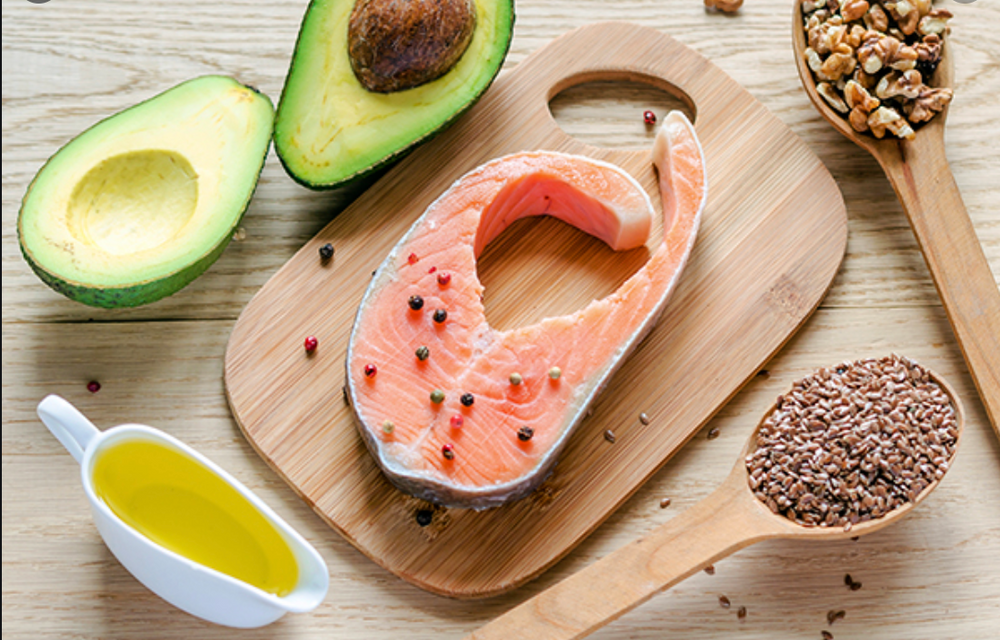
#1 Linoleic Acid (LA)
LA is an Omega-6 fat, found in hempseed, soybean, safflower oils. Deficiency of LA is linked to coat and skin issues and can make your dog sluggish.
#2 Alpha Linolenic Acid (ALA)
ALA is an Omega-3 fat found in flaxseed, chia seed, hemp seed and walnut oils. Dogs primarily use ALA to make EPA and DHA, which are essential for body, brain and eye health.
#3 Arachidonic Acid (AA)
AA is an Omega-6 fat found in meat, poultry and eggs. AA is a brain fat and lack of AA in a puppy’s diet can have a serious impact on cognitive development. Found in all meat, Chicken, eggs, and fish are particularly high in it.
#4 Eicosapentaenoic Acid (EPA)
EPA is an Omega-3 fat found in oily fish like salmon, herring and sardines. EPA is considered a powerful anti-inflammatory fatty acid.
#5 Docosahexaenoic Acid (DHA)
DHA is an Omega-3 fat, also found in oily fish. DHA is essential for the brain and eyes. This is a Polyunsaturated Fatty acid, and they are all fragile. They must be protected from oxidation or they can do more harm than good to your dog. (Read why “Healthy fats added to dry food is especially damaging to your puppy)
Carbohydrates, Proteins and Fats are called the Macros of nutrition. These are the 3 major categories that our foods fall into. With this brief, albeit simplistic explanation, we can see how each of them behaves in the body, and the functions they carry out. Puppies are building their whole body and getting bigger essentially with the help of Protein. The quality of the build, as we all know depends on the quantity of the raw material, and the quality of it. BAD quality protein, just just build a bad quality structure. KIBBLE is a bad quality protein. Fats, not only need to be good quality, but also fresh. And there really needs to be a good balanced mix of the 5 types of essential fatty acids. These fatty acids also help utilize fat soluble vitamins from the food.
What is the impact if bad nutrition in puppies?
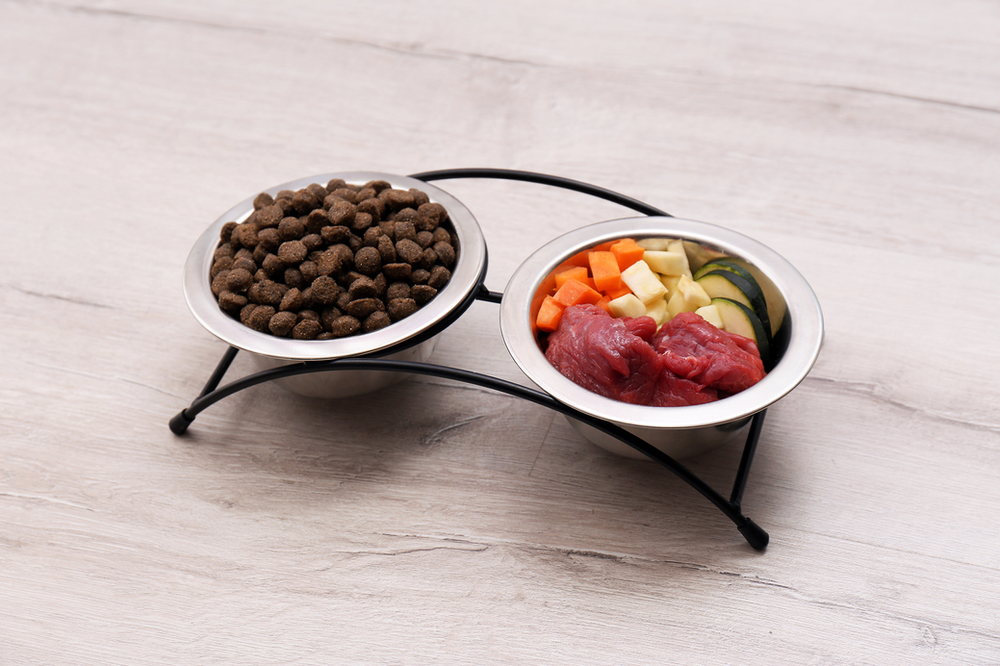
I kind of feel like this is covered, but just to sum it up, I’d like to say that the impact of bad nutrition is like sentencing your dog’s body at a cellular level to deprivation and cruelty for a lifetime. I do not know how to say more, so I will quote Dr Karen Becker, who is a wonderful Holistic Vet, who has spent a fair few years doing “ conventional practise” till she realized how wrong it all was. And has now spent several years educating people about the importance of holistic natural wellness for dogs and cats. In one of her Vlogs incidentally about dogs on a vegetarian diet, she says “ …Some animals can be nutritionally abused more than others. For instance a hummingbird. If you were to feed it anything other than nectar, the bird will die in 24 hours! But dogs are super resilient. And one can nutritionally abuse them and they don’t die instantaneously, but their bodies degenerate over time. And because they can take the abuse, it DOES NOT make it ok to NOT feed them their species appropriate diets. Click here to watch the Video.
Have a new puppy at home? Tell us how your are planning their health and wellbeing?
